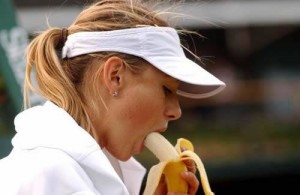Blaming the “victim” (Chiquita Brands)
As my loyal readers may recall, my verdict on Chiquita brands was “Cheap, but evil.” It turns out that the law firm of Boies Schiller agrees with me, since they have recently filed a class action on behalf of 242 Colombians who were the victims of a Colombian paramilitary group that was running a protection racket around Chiquita’s plantations. Damages sought are $1 billion, or roughly $4 million each. Perhaps Boies Schiller was emboldened by a similar lawsuit filed last week.
 Not the kind of thing you want to see when you’re quietly accumulating a position, certainly, but let us consider what was actually going on. Unless Chiquita Brands is more evil than I thought, their payments to various rebel groups was not specifically so that the groups would go around murdering and kidnapping. As far as Chiquita was concerned, the paramilitary groups in question were a bunch of thugs demanding protection money, and Chiquita was paying them in order that their banana fields would not be burned down. Of course, the Colombian government and the US government has identified these groups as terrorists, but it seems to me that if the Colombians cannot keep a region of their own country free from rebels, they don’t really have grounds to complain when a company has to make their own arrangements, and why any of this is the business of the US government is beyond me.
Not the kind of thing you want to see when you’re quietly accumulating a position, certainly, but let us consider what was actually going on. Unless Chiquita Brands is more evil than I thought, their payments to various rebel groups was not specifically so that the groups would go around murdering and kidnapping. As far as Chiquita was concerned, the paramilitary groups in question were a bunch of thugs demanding protection money, and Chiquita was paying them in order that their banana fields would not be burned down. Of course, the Colombian government and the US government has identified these groups as terrorists, but it seems to me that if the Colombians cannot keep a region of their own country free from rebels, they don’t really have grounds to complain when a company has to make their own arrangements, and why any of this is the business of the US government is beyond me.
But turning to the merits of the lawsuit itself, it seems to me that the plaintiffs are hoping to play the terrorism card and hope things go well, because under traditional tort law I believe these claims to be a non-starter. First of all, Chiquita brands was not complicit in any actions taken by the Colombian paramilitary groups, so any claim based on intent would be ineffective, which leaves us with a negligence claim. Negligence consists of duty, breach, causation and damages. Duty and breach are fairly simple; arguably Chiquita Brands has a duty not to pay protection money to terrorists and they breached that duty (or so their settlement with the US government would seem to indicate).
But the question is one of causation. The customary test here is the but-for test: But for Chiquita’s paying protection money, would all of these kidnappings and murders have occurred? I would deem that rather a hard sell; paramilitary rebels don’t tend to keep audited financial statements, and although money is fungible it is virtually impossible to prove that Chiquita’s protection payments facilitated the acts in question.
I suppose the closest analogy would be a negligent entrustment situation, where, say, a defendant who lends a motor vehicle to someone he knows to be an unsafe driver may be held liable if the driver takes out a farmer’s market, but in this situation the but-for analysis is stronger; the unsafe driver would not have had the car without being lent it by the defendant, but here, again, it is not clear that the Colombian rebels would not have had the means to engage in their terrorism without Chiquita’s money.
 This lawsuit also sets off a slippery slope that anyone who gets shaken down by a criminal is on the hook for any unrelated crimes committed by that criminal, as though by paying the money he becomes a conspirator. I don’t know of any cases that have reached that conclusion, and gangsters have been running protection rackets for centuries, at least since Alaric agreed to lift his siege of Rome for one and a half tons of pepper. But is that really appropriate, where the connection between the purchases and the criminal activity is so attenuated? Are people who use petroleum products liable for Saudi Arabia’s human rights abuses? Some ethicists would say yes, but the law disagrees, and wisely so in my opinion. Chiquita wasn’t signing up on the side of the terrorists; the terrorists’ interests were actually hostile to those of Chiquita’s, and it seems a bit unfair that Chiquita should be in this kind of trouble for simply wanting their banana plantations not to be burned down.
This lawsuit also sets off a slippery slope that anyone who gets shaken down by a criminal is on the hook for any unrelated crimes committed by that criminal, as though by paying the money he becomes a conspirator. I don’t know of any cases that have reached that conclusion, and gangsters have been running protection rackets for centuries, at least since Alaric agreed to lift his siege of Rome for one and a half tons of pepper. But is that really appropriate, where the connection between the purchases and the criminal activity is so attenuated? Are people who use petroleum products liable for Saudi Arabia’s human rights abuses? Some ethicists would say yes, but the law disagrees, and wisely so in my opinion. Chiquita wasn’t signing up on the side of the terrorists; the terrorists’ interests were actually hostile to those of Chiquita’s, and it seems a bit unfair that Chiquita should be in this kind of trouble for simply wanting their banana plantations not to be burned down.
Chiquita Brands no longer has any operations in Colombia, and considering the fallout from these events, I’m not surprised. The Colombian government, if it wanted Chiquita’s business, could have provided security for the banana plantations, and now Chiquita is expected to pay for the government’s failure. But I doubt that even a firm like Boies Schiller will be successful in making them do it.
Leave a Reply